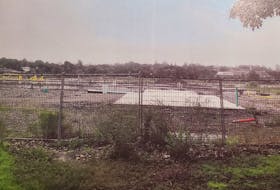ST. JOHN'S, N.L. — A national ranking of food security across Canada has found hungry homes more prevalent in St. John’s than any of the 35 cities surveyed.
The study, published by the University of Toronto’s PROOF Food Security Policy Research Centre, found one in six homes in St. John’s have no guarantee of their next meal.
"Among the 35 census metropolitan areas examined, food insecurity was most prevalent in St John’s, affecting more than one in six households in this city,” reads the report.
“The lowest rate of food insecurity was in Quebec City, where 1 in 12 households was food-insecure.”
The provincial government has a goal of doubling the food supply in the province, aiming to make the province 20 per cent self-sufficient, largely through encouraging farming and food production on the island, rather than relying on imports.
Josh Smee, CEO of Food First NL, says growing more food at home is a good thing, but he points to inadequate income-support measures as one of the drivers of food insecurity in the province.
“Overwhelmingly, it’s a poverty issue. There’s a couple of pieces to that,” said Smee.
“A pretty large proportion, upwards of 60 per cent, of food-insecure households would be folks who are living on social assistance. I think we can just be blunt that the social assistance rates are quite low, given the cost of living in this city. When you think about the impact of that and where people cut back their expenses, food often is one of those places. If you’re using your social assistance payment to cover fixed costs — rent is the same every month — the one place where people have to trim is food.”
That said, income-support measures in Newfoundland and Labrador are among the highest in the country, according to MayTree, an Ontario-based anti-poverty advocacy group.
According to a report published by the group in May, there were approximately 22,800 families on income support in 2019. The amount of families receiving the support has declined slowly over the last 20 years, with approximately 32,000 receiving income support in 1997. According to Maytree, in 2019 a single person considered employable received over $11,000 a year in income support in Newfoundland and Labrador, the highest in the country.
However, the report notes that there are no annual increases for social assistance in the province, unlike other provinces in the country, which tie increases to the inflation rate.
In his mandate letter, Minister of Children, Seniors, and Social Development Brian Warr has food insecurity listed as a top priority to address.
“I expect you to review existing actions related to housing and food insecurity, poverty reduction and lead development of a renewed strategy to reduce poverty in consultation with stakeholders, experts and communities,” reads the letter.
Nationally, the survey found food insecurity is most prominent in households with children, particularly for single parents.
"Food insecurity is more prevalent among households with children than those without children across the country. In 2017-18, 16.2 per cent of households with at least one child under 18 years of age were food insecure, compared to 11.4 per cent of households without a child under 18 years of age,” reads the report.
“Among households with children, the risk of food insecurity is much higher for lone parents than couples. In 2017-18, 11.8 per cent of couples with children under 18 were food-insecure, but this rate rose to 21.6 per cent for male lone-parent households and 33.1 per cent for female lone-parent households with children under 18.”
Smee says simply giving more support for food banks isn’t the answer. He says food banks are important as an emergency measure, but aren’t the answer to the issue.
“It’s not to denigrate that movement, but you can’t solve the systemic problems through those kind of emergency supports. They’re super important to have. People can be in crisis positions in their lives,” he said.
“But we know for every food bank user there are several people who could take advantage of a food bank and don’t. With that system, unfortunately, it’s hard to image it ever having the capacity to meet the need of the whole population.”
Smee is one of dozens of signatories of the Coalition for a Just Recovery NL. The coalition sees the crisis brought on by the COVID-19 pandemic as a moment to rethink how the provincial economy works as we look to the world beyond the pandemic.
The second recommendation of the coalition calls for a pilot of a universal basic income to be launched in the province.
“Newfoundland and Labrador is an ideally-sized jurisdiction to pilot the provision of a basic income. Specifically, we would support a model based on one of the policy options advanced by Basic Income Canada,” reads the list of initiatives.
“This is the single policy intervention that would do the most to make a difference in the lives of all the diverse populations our organizations serve, by providing people with the resources they need to make the choices that are critical to their well-being.”









